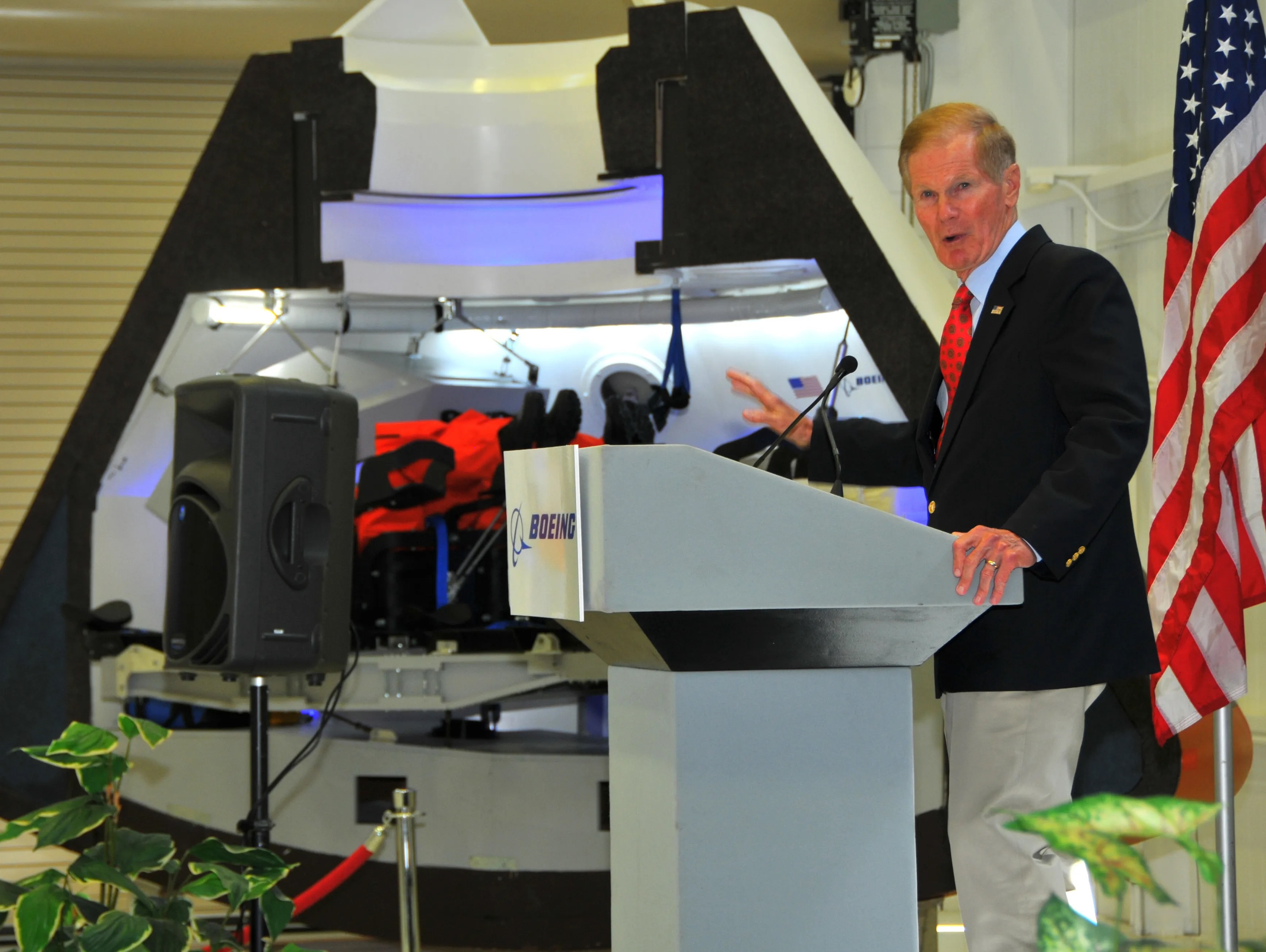20.12.2024

NASA's Apollo 16 astronauts launched to the moon on April 16, 1972. Two days later on the Space Coast, an aspiring 29-year-old Melbourne attorney named Bill Nelson announced he would run for a Florida House seat in the upcoming Democratic primary.
"Today, I am announcing my candidacy in the hope that I may begin a life of public service in which I can give of myself with whatever ability God gave me," Nelson told supporters during that press conference — earning mention by TODAY, FLORIDA TODAY's predecessor publication.
Nelson would win that 1972 Florida House election, kicking off a marathon half-century career in the political limelight that took him from Brevard County to Tallahassee to Washington, D.C. — and into low-Earth orbit aboard space shuttle Columbia.
Now, the past Melbourne High student body president and co-valedictorian is planning to step down Jan. 20 after serving nearly four years as NASA's administrator. President-elect Donald Trump has nominated Polaris Dawn commander and astronaut Jared Isaacman — the 41-year-old billionaire founder and CEO of Shift4 — to serve as NASA's next administrator.
"My constitution is such that I'm not going to retire. And what I said is, I'm going to cloister myself and write a book. And then, we'll see what happens," Nelson, who is now 82, told reporters Wednesday during a roundtable discussion at the Kennedy Space Center Press Site.
Trump announced Isaacman's nomination on Dec. 4, and he awaits potential confirmation by the U.S. Senate. Nelson said he called Isaacman that day to offer congratulations, and he told him he'd love to see him at his convenience.
Nelson is NASA's 14th administrator, and he said each brought a different platform and plethora of experiences to the table. Isaacman does not have previous political experience. On Wednesday, Nelson told reporters he will tell Isaacman, "you need to be mindful that the budget is only proposed by the executive branch."
"The budget is enacted by the Congress. And that means a lot of nuances," Nelson said.
To that end, Nelson said he just learned $180 million in emergency supplemental appropriations to develop the International Space Station deorbit vehicle — which is intended to bring down the orbiting outpost after 2030 for safe splashdown in the South Pacific Ocean — had been cut at the insistence of House Speaker Mike Johnson.
Another piece of advice for Isaacman: "Be prepared to lead 24-7-365. And what you never expect, will happen."
Nelson praises NASA's people, programs
President Joe Biden appointed Nelson to serve as NASA administrator in March 2021, and he was sworn in two months later.
Nelson said "we've had an incredible run" during his tenure, citing the James Webb Space Telescope and the regular cadence of astronaut and cargo launches to and from the ISS. He also expressed optimism that the NASA-Lockheed Martin needle-nosed X-59 supersonic aircraft will soon make its maiden flight, without generating loud sonic booms.
During a NASA press conference two weeks ago, Nelson announced the Artemis II moon mission — which will transport four astronauts around the moon — has been postponed again to an April 2026 target launch. Chief reason: Engineers continue probing the unexpected charring of the Orion capsule's heat shield, which occurred during the November 2022 uncrewed Artemis I mission, among other issues.
In tandem, NASA is also postponing Artemis III, which will land astronauts on the moon's rocky surface, until mid-2027.
Asked about Artemis II on Wednesday, Nelson called the April 2026 target date "very realistic," and the massive rocket may launch earlier. He said that launch will not occur until NASA is ready, and "safety is our North Star."
Nelson praised his "fantastic" team at the space agency. Showing reporters his blue NASA jacket, he pointed out a mission patch bearing images of the moon and Mars alongside three names: Nelson, former deputy administrator Pam Melroy, and former associate administrator Bob Cabana.
"She had that patch made because we operate as a crew," Nelson said.
Shuttle Columbia STS-61C flight in 1986
Nelson served in the Florida House from 1972 to 1978, the U.S House of Representatives from 1979 to 1991, and the U.S. Senate from 2001 to 2019.
"In Congress, Nelson was considered the congressional leader for our nation’s space program, a strong advocate to combat climate change, and a proponent for career training and education programs in science and technology to create more good-paying American jobs," his NASA biography says.
Nelson trained and launched into orbit with the crew of the space shuttle Columbia in January 1986 on the six-day STS-61C mission. Serving as a payload specialist, he conducted 12 medical experiments, including "the first American stress test in space on a treadmill" and a University of Alabama effort to grow crystal proteins for cancer research, NASA reported.
During his Wednesday remarks, Nelson recalled writing his college thesis on how Cape Kennedy would impact Brevard County politics. And he described how the Columbia mission represented a personal circle. While elevated up on the crew access tower at pad 39A before boarding the spacecraft, he looked to the northwest where his grandparents had homesteaded a plot of land in 1913 near today's shuttle landing runway on north Merritt Island.
"So when I think of legacy, it's kind of in my DNA," he said.
Quelle: Florida Today

